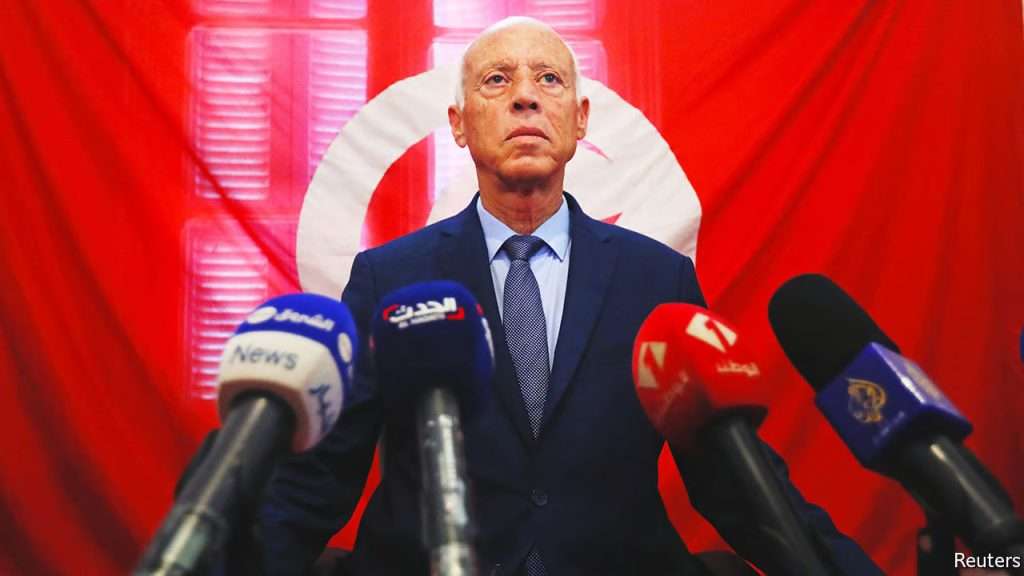Tunisia: Saied compromises independence of central bank

The new Central Bank of Tunisia governor is charged with averting a debt crisis with IMF talks in limbo, according to The National.
AFP reported that the February 15th appointment of Fethi Zouhair Nouri came after a purported falling out between his predecessor and President Kais Saied, over the country’s IMF bailout programme.
READ: Tunisia: Saied regime turns to Central Bank for bail out
The governor is now tasked with maintaining the central bank’s independence after the recent parliamentary approval of a law authorizing the banking regulator to fund part of the government’s financial needs for the year ahead.
The legislation allows interest-free central bank financing on a one-off basis for 7 bn Tunisian dinars ($2.2 bn for 4% of GDP), to be repaid over 10 years, and is expected to “erode the [bank’s] autonomy, complicating its price and financial stability goals and ultimately weighing on the effectiveness of the monetary policy,” stated Moody’s Investors Service report.
Nouri, a former professor at the Faculty of Economics and Management Sciences in Tunis, served on the Tunisian Economic and Social Council from 1994 to 2011 and worked as an economic adviser at the Financial Market Council from 2013 to 2015.
Research fellow at the Beirut-based Malcom H Kerr Carnegie Middle East Centre, Hamza Meddeb, told The National that Nouri’s immediate priorities would “involve navigating the delicate balance of financing the government deficit, servicing debt obligations and curbing inflationary pressures.”
He added that “with very little foreign funding forthcoming, this task will be undeniably challenging.”
After a 9.2% retraction in 2020, the worst in the MENA region, Tunisia’s economy has rebounded slightly in recent years but is strained by the impact of the Russia-Ukraine war and growing national unemployment.
The country’s GDP contracted an annual 0.2% in the fourth quarter of 2023, as drought and a decrease in domestic demand hit the agricultural sector, while inflation and unemployment rise.
Meddeb also blamed a lack of dedicated leadership as to economic reforms on the country’s lack of economic growth, stating: “Since his power grab in 2021, the President has prioritised reshaping the political landscape to centralise authority rather than tackling economic problems.”
Saied’s administration has rejected agreements with the IMF and EU, preferring to rely on windfalls from foreign currency vie remittances from Tunisians abroad and tourism, to service debt and postpone reform.
READ: Tunisia tourism on path to recovery
Meddeb stressed that the country’s need to devise an investment strategy to stimulate growth and create jobs, with the establishment of “fair competition policies and strategically transitioning toward renewable energy sources.”
Currently, Tunisia imports 60% of its gas and half of its oil needs.
Analysts predict bleak prospects for the Tunisian economy as it heads for a presidential election later this year, with the economy expected to grow less that 1% in 2024, while current account and fiscal deficits are expected to remain at 4% and 5% of GDP.
Head of emerging market equity strategy at Tellimer, Hasnain Malik, claimed direct borrowing from the central bank to pay back maturing Eurobonds, and to partially fund the country’s fiscal deficit has further damaged the credibility of Saied’s economic policy.
Malik added that “while foreign reserves have increased recently, most of this is down to higher external borrowing and there is a requirement for over $4 billion of fresh external funding in each of 2024 and 2025.”
“In other words, this hit to policy credibility is going to make it harder to secure the IMF deal and foreign portfolio capital needed.”
The National / AFP
Want to chase the pulse of North Africa?
Subscribe to receive our FREE weekly PDF magazine














